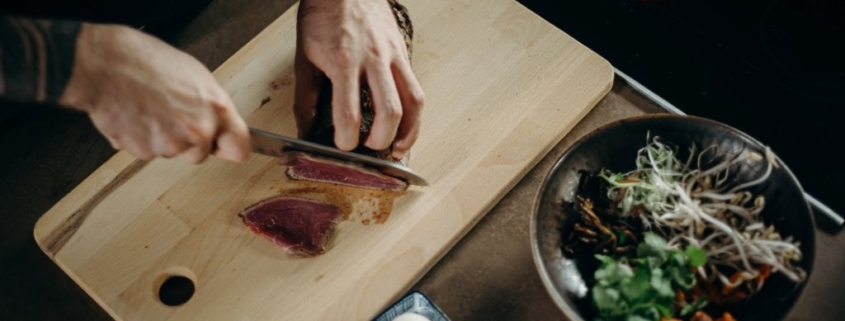Put Safety First This Holiday Season
 The holiday season is upon us and so is National Food Safety Tips month! This pairing is not by coincidence as many of our celebrations are centered around food.
The holiday season is upon us and so is National Food Safety Tips month! This pairing is not by coincidence as many of our celebrations are centered around food.
We want to keep our family and friends healthy and safe from foodborne illnesses. Those loved ones most susceptible to these illnesses are pregnant women, children and the elderly. I have compiled a list of safety precautions to ensure that everyone can enjoy healthy, safe and nutritious holiday meals together.
Shopping Tips
Food safety isn’t isolated to the kitchen. Preventing foodborne illness starts at the grocery store! Shop smart and shop safely.
- Buy perishable foods, such as deli items, and frozen foods last to avoid temperatures falling into the danger zone which registers between 40-140 degrees F.
- Keep raw meat away from other foods and in a separate bag from other groceries.
- Avoid buying cans that are dented or malformed. Bulging cans could indicate contamination.
- Read sell by dates. If you don’t plan on using the foods right away, purchase foods with later sell by dates.
- If using reusable bags, make sure they are washed well between uses to avoid cross-contamination.
Preparation
The golden rule in food preparation is to wash your hands before touching ANY food. Also, wash your hands between handling raw meat and food that won’t be cooked. Other food safety preparation tips include:
- Always use a different cutting board for raw meat and ready-to-eat foods.
- Always thaw in the refrigerator, not on the kitchen counter.
- Use a thermometer to check the internal temperature of the food to ensure they are at the proper temperature.
Temperatures to safely cook foods to:
- Beef, pork, veal, fish, and lamb: 145 degrees F
- Ground beef, veal, and lamb: 160 degrees F
- Eggs: 160 degrees F
- Poultry: 165 degrees F
Storing
After all the food shopping, preparation, and festivities are done, you’re likely to have leftovers. Proper food storage is a crucial step in food safety. Proper storage of food safety includes:
- Use airtight containers or baggies to keep food fresh.
- Freeze food that you’re not going to use within 4 days.
- Eat leftovers that are stored in the refrigerator within 3-4 days.
If you’re questioning if your food is still good, don’t take the risk, toss it! Practicing food safety is an important step to take to enjoy a happy and healthy holiday!
Your Turn to Take Action: How do you prepare for the holidays? Let me know in the comments below.


Leave a Reply
Want to join the discussion?Feel free to contribute!